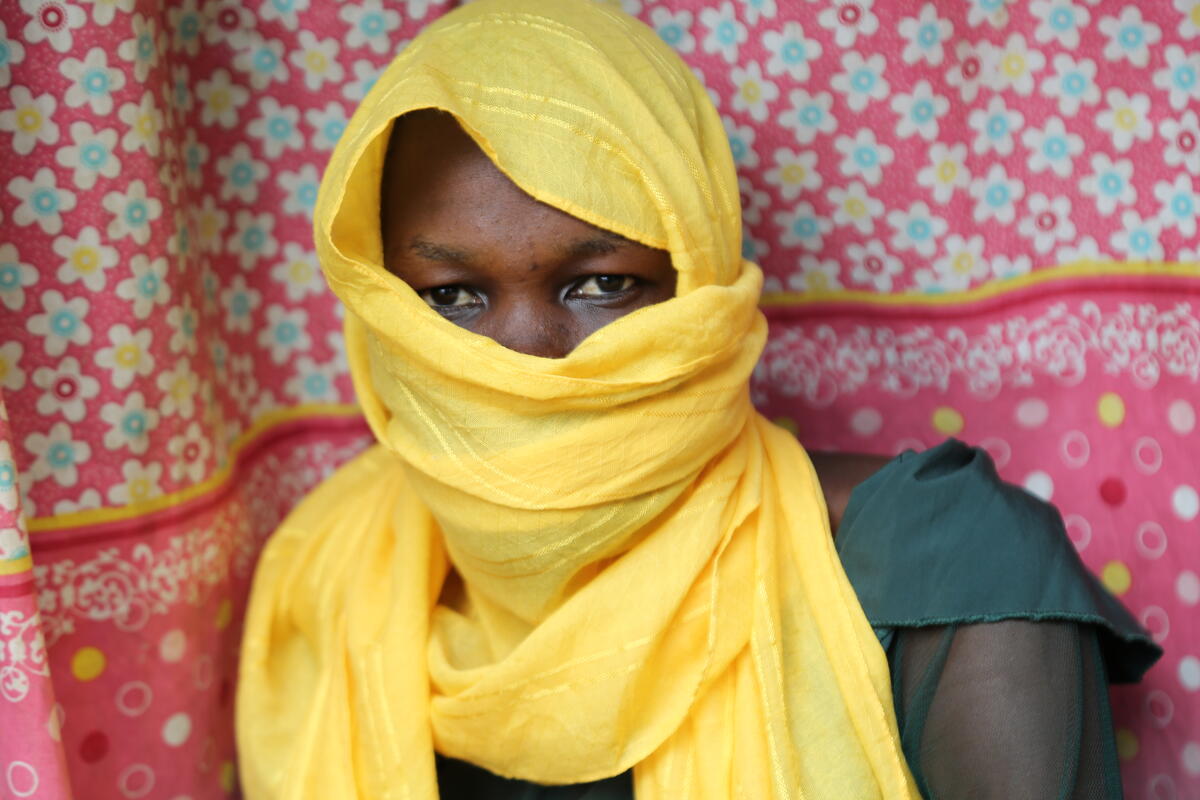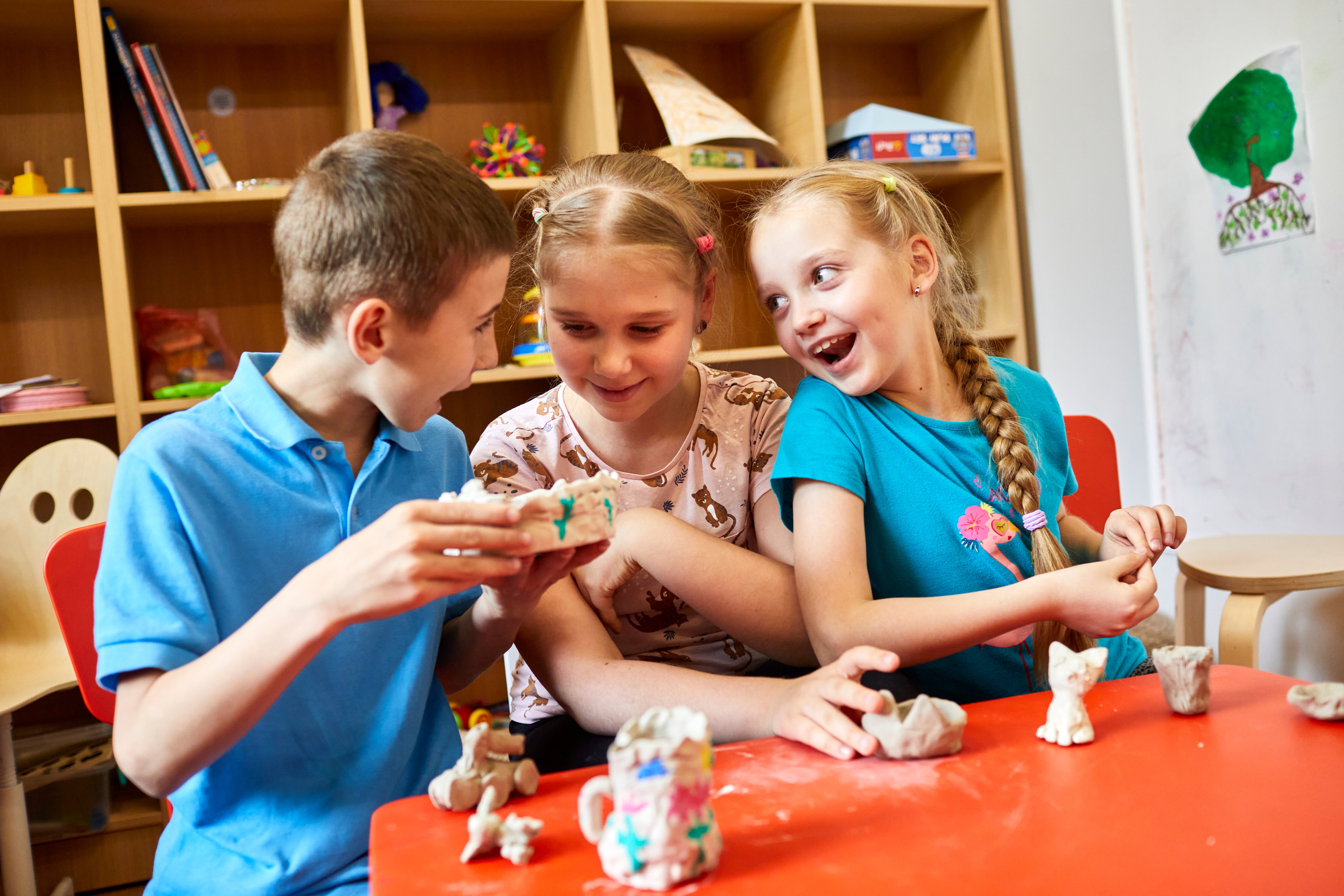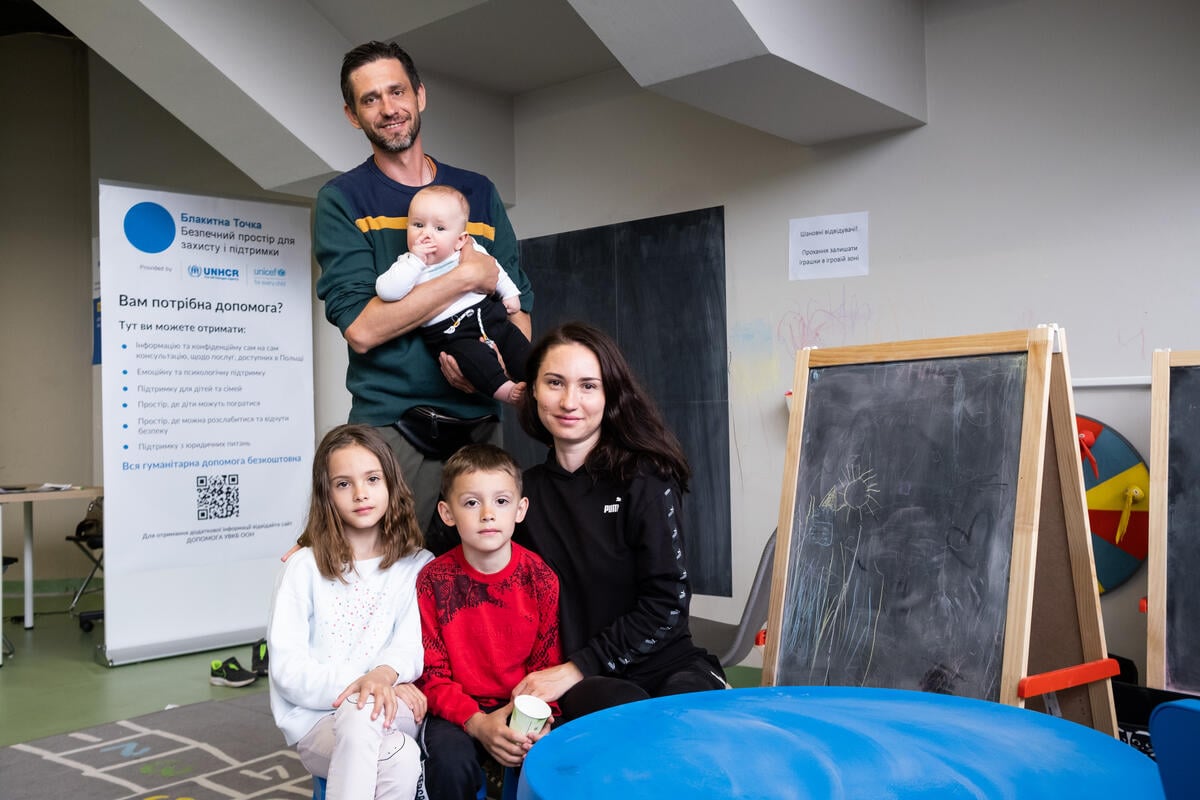In Kenya, UNHCR Special Envoy urges support for child refugees
In Kenya, UNHCR Special Envoy urges support for child refugees

NAIROBI, Kenya – UNHCR Special Envoy Angelina Jolie urged people to consider the plight of millions of child refugees during a visit to a residential centre for adolescent refugee girls in Nairobi for World Refugee Day.
Jolie met about 200 refugee girls, who are unaccompanied or separated from their parents and are now living in the Heshima Kenya Safe House in the Kenyan capital, where they participate in a girls’ empowerment programme.
The girls have fled extreme violence or persecution in the Democratic Republic of the Congo (DRC), South Sudan, Somalia, Burundi, and Rwanda. Almost all have suffered sexual and gender-based violence.
Many have given birth, or are pregnant, after being raped. They shared their stories and details of their lives with the Special Envoy during her visit, which took place at a time of record global displacement.
“Over half of all refugees and displaced people worldwide are women and children. How we treat them is a measure of our humanity as nations,” Jolie said. “On World Refugee Day my only ask is that people consider the pain and suffering of young girls like these.
“Not only have they had to flee extreme violence or persecution, lost everything and witnessed the death of family members, but they have also had to face so much abuse and intolerance and hardship.”
"How we treat them is a measure of our humanity as nations."
Jolie said the youngstgers were doing their best to carry on, with “minimal support trying to live lives on dignity against impossible odds. It was an honour to spend the day with them.”
It was her third visit to Kenya, home to nearly 491,000 refugees from neighbouring Somalia, South Sudan, DRC, Burundi and other countries in the region.
Most of the 67,000 urban refugees in Kenya struggle to survive on handouts from UNHCR, the UN Refugee Agency, and other humanitarian organizations, and many are trying to recover from horrifying abuse and terror endured before or during their flight.
In all, Heshima Kenya’s Girls’ Empowerment Project helps some 200 refugee girls, including those in the Safe House. They receive education, and training in a variety of skills to enable them to become self-reliant.
"We just want to go back to the life we once had, to play like we used to."
Among girls living at the home run by Heshima – whose name means “respect” in Swahili, Kenya’s national language – is 14-year-old Lucie from Burundi. After her parents were killed, and with nobody to look after her, she and a sister fled to Kenya by truck, and were subsequently referred to the shelter.
"We just want to go back to the life we once had, to play like we used to,” she said.
Benedict, who oversees the Heshima Kenya programme, described his motivation in helping the refugees: “When I see them, I don’t see refugees, I see human beings who are suffering, not out of choice, but because of circumstances beyond their control.”
With the option of resettlement scarce, Heshima Kenya focuses on helping the refugees to fully integrate within the Kenyan community. This approach is also being championed by UNHCR and its partners in international talks that aim to forge a new Global Compact on Refugees next year.
“When you empower them, you bring them dignity,” Benedict said. “They don’t need to rely on anyone. The Kenyan government can also start to appreciate them – as taxpayers, employers and consumers with purchasing power.”
Jolie also praised the work of Heshima Kenya and thanked Kenyans.
“Kenya hosts close to half a million refugees and we at UNHCR we are very grateful to the people and government of Kenya for that."









